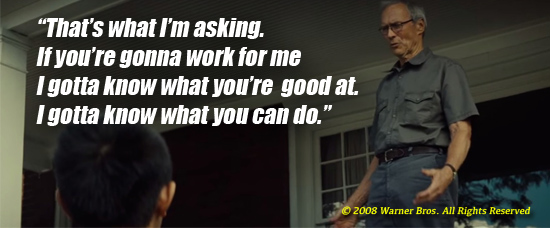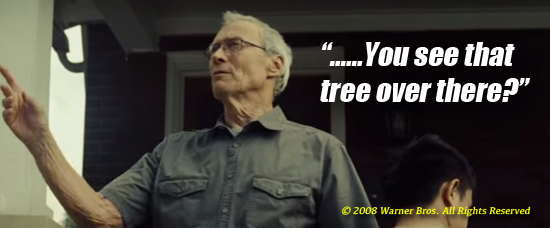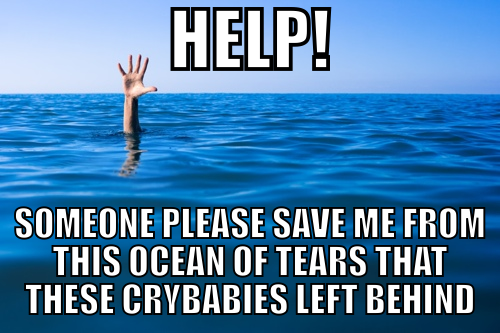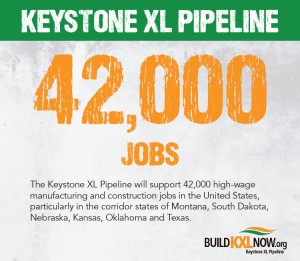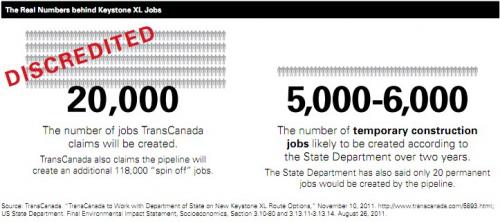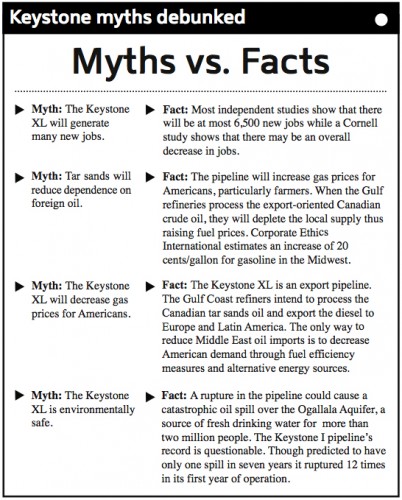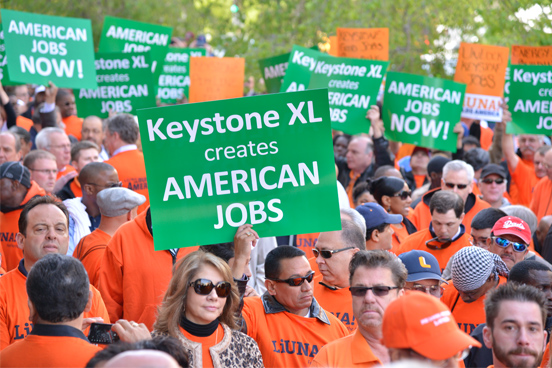Recently I watched Disney's latest 3D animated feature "Big Hero Six", a film about a robot named Baymax that can diagnose and treat most ailments and diseases. I can't help but wonder what life would be like if Baymax existed and every home had a model. People would rarely (if ever) have to go to the doctor, meaning that people wouldn't have to spend as much time working to pay for health care (which costs a ton these days). Additionally, several diseases and infections would be thwarted before becoming fatal, saving countless lives. This would all be great!
That is until some crybaby writes an op-ed for Huffington Post with horror stories about how doctors and nurses everywhere are out of jobs, only to pile on guilt to those who own a Baymax (and especially on the company that produces Baymax). Of course, this would ignite a debate over whether or not businesses are creating enough jobs and whether or not we should pressure the government to step in and save jobs, and/or create jobs. Except that creating jobs is a waste of time.
This is a scene from the movie "Gran Torino". Thao's family ordered him to work for their neighbor, Walt (played by Clint Eastwood), as a means of settling a debt from a prior scene in the movie. Given that Thao clearly doesn't have any valuable skills, Walt initially refuses to employ him. But hey, Thao needs a job because Thao owes Walt. So Walt gives Thao the mundane task of counting birds. Walt sure is an asshole.
I think this scene perfectly illustrates the idea of job creation in America: Thao needed a job, didn't have any worthwhile skills, but was given a job anyway because someone guilted his neighbor into employing him. The result was that a few birds got counted. Sound familiar? Every day I see people getting all butt-hurt over the obligation of creating jobs. Apparently no innovation, business, policy, or project can be virtuous unless it creates enough jobs. A recent story in the New Yorker discusses how Peter Thiel (cofounder of PayPal) is dissatisfied with the tech industry because it has not created enough jobs. Additionally, in an opinion piece titled "Silicon Vally to millennials: Drop Dead", David Wheeler criticizes Silicon Valley for erasing more jobs than it creates, and reports with dismay that the jobs the tech industry does create are mostly minimum wage and sharing economy-jobs (like Lyft and Uber, for example), and expressed fears that automation will replace too many jobs.
When I read guilt-driven editorials about how the tech industry and corporations aren't creating enough jobs, and that we as a society ought to do something about it, what I really hear is "Let's find birds for people to count".
Apparently creating jobs and saving jobs is what's really important for everyone. After Wheeler condemns automation, he suggests that we should "stop glorifying the tech industry", and start electing politicians that will hold tech giants "accountable for their power over the workforce", as part of a mission to halt Silicon Valley before Silicon Valley becomes too powerful. Great idea. While we're at it, perhaps we should hold off on curing cancer as well, right dipshit? After all, breast cancer has become a multimillion dollar industry according to the documentary "Pink Ribbon, Inc". Because of breast cancer, many people have found work in advertising, providing chemotherapy, filmmaking, pap smear collecting, accounting, public relations, stitching pink ribbons, as well as work in other fields. Wow, thank god for breast cancer! I sure hope nobody cures this job-creating disease anytime soon, otherwise countless people would face unemployment.
Any rational person should be baffled by this job-loss hysteria. Let's begin by focusing on the tech industry: Isn't a key purpose of technology to make life easier? Making life easier usually means a reduction of laborious tasks. Think about buying music - In 1999, when I wanted to purchase a new album, I had to ride my bike - Sometimes in shitty weather conditions - to a record store to wait in line just to spend $15-20 on a plastic circle. The whole ordeal would take at least two hours. 2015? All I need to do is open iTunes and I can have a new album within minutes. Sure, the record store I used shop at is now closed, and people who worked there, along with the people that manufactured discs, lost their job. But fuck 'em. Buying music today takes much less of my time than it did in 1999. And my time is important. The hours I save on buying music allows me to enjoy life more. Hell, the time I save on buying music gives me more time to work. The less time I spend on purchasing music, the more time I can spend on making money.
Whenever I read about how technology is replacing labor, I think "Fantastic! That's less work that people have to do". Besides, the purpose of innovation and invention is not to create jobs. Innovation often comes to as an effort to eliminate jobs in order to make products cheaper, all while making the production process easier so that workers are safer and less exhausted. What drives production, innovation, and technological achievement is the motivation to make life easier, better, and more fun. With that said, I bring you this quote from Harry Binswanger:
"Capitalism is geared around creating values, not around creating "things to do" or "livelihoods for the masses."
A job is a task. Creating tasks is not a value. It's also, of course, a payment for doing that task. A job is a source of income for the person hired. Good for him. But that salary is a cost for the investor. Like all costs, a salary is something requiring justification. The justification is in terms of the outlay generating profit. A newly added job is good only to the extent that it produces more value for the owners than they have to pay out in wages. It's not job creation that should be our focus, but profit."
What are people to do if their desires for new technology, new gadgets, better service, cheaper products, and more leisure time, results in others losing out on work? Absolutely nothing, that's what. Should I feel sorry for the struggling cab driver when I use Lyft after a night of drinking? Should I stop renting movies online just so that the manager of my local video store doesn't have to close shop[1]? People are also working on 3D printers that will print meat based off of DNA blueprints. Should the engineers behind these machines halt their projects before countless fisherman crews, cattle farmers, and butchers lose business? "Wait, you mean I can print tuna out of this machine? What about the men that want to risk their lives trying to catch this fish in the ocean, and then demand that I spend money on it? I couldn't possibly live with myself knowing that these men would face unemployment, the worst thing that could ever happen to anyone. This machine is evil!" And what about the people who create and build all of this stuff? When Amazon starts using drones to deliver packages, should Jeff Bezos then find birds for all of the laid off UPS truck drivers to count?
Heaven forbid a person learn a new skill, or find work in another industry.
[1]I know that getting fired or laid off can be difficult, especially if one has mouths to feed. But I think that even someone who loses their job due to automation or technological progress would think it's pretty unfair to condemn people for wanting cheaper, more convenient service. Imagine that you lose your job bagging groceries at a supermarket because people prefer self-checkout registers, along with ordering groceries off Amazon Fresh to be delivered directly to their front door. Would you honestly demand that the store remove self-checkout registers, and proceed to guilt others for ordering groceries off of websites? I think we can agree that anyone who thinks this way, and uses technology as an excuse to not work and refuses to develop skills other than placing food into plastic sacks, is an asshole.
It's not a business's responsibility to ensure that people have jobs. It's not an innovator's responsibility to create new jobs. It's not anybody's responsibility to spend more money on products and services simply so that others can avoid the pink slip. And lastly, it's especially not society's (i.e. the government's) responsibility to fix unemployment. If someone loses their job because technology has made their job obsolete, then it's up to them to find a different industry where their talents are of value. If an individual needs money, then it's up to them to develop a skill that they can sell on the labor market. It's nobody's responsibility to find birds for others to count. Furthermore, it's completely unfair to guilt people for buying and using new technology over the notion that it's destroying jobs.
By what standard does an industry not create enough jobs? Business, innovation, and technology shouldn't be measured by whether or not jobs are created, and shouldn't be skewered if jobs are phased out. If technology is raising the standard of living, and allowing people to work less, then we should damn sure celebrate it. If automation and outsourcing drives down the prices of goods and services, thereby enabling people to rise out of poverty, then we should welcome it with open arms.
People often use the job-creation argument as if it's some sort of moral trump card when it comes to discussing government and politics. The Keystone XL Pipeline is a great example: One of the primary debates surrounding the proposal is whether or not it creates enough jobs, which is complete bullshit.
Which begs the question: Exactly how many jobs is "enough jobs"? Does it even matter[2]? It's not like these success-hating environmentalist douche nozzles would suddenly approve the Keystone XL Pipeline if it could permanently eliminate unemployment. Creating jobs is only important to them so long as a few trees aren't uprooted. However, when it comes to corporate welfare, people are more than willing to flush their principles down the shitter like a handful of diarrhea as long as the corporate welfare leads to enough employment. Following the 2008 Financial Crisis, people flocked to Wall Street in droves to express their disdain toward the taxpayer bailouts of large banks. Yet when the government bailed out General Motors and Chrysler, nobody went to occupy Detroit in protest. In fact, many applauded the government for helping the automotive industry because hey, it created jobs!
[2]As if a lack of job creation is supposed to deter me. So the pipeline won't create as many jobs as conservatives claim? That's awesome! That's less money I have to spend on gasoline.
Speaking of Detroit, the state of Michigan is about to give billionaire Mike Ilitch $285 million to build a new sports arena in the Motor City. Whenever I contest this issue, even with conservatives[3], people defend the project because hey, it's creating jobs! How wonderful. I find it cute that conservatives constantly rally against giving poor people tax dollars, but billionaires? Apparently it's totally acceptable as long as they pay enough people to count birds. It's funny how conservatives constantly frown upon redistribution of wealth. Conservatives love redistribution of wealth, they just prefer that Mike Ilitch redistribute the wealth rather than Barack Obama. Nevermind the fact that the investors, i.e. Michigan taxpayers, don't have a say in the matter and don't have the option to withdraw their investment. Apparently what's really important is that a handful of unemployed people get to pour concrete, sell soda, print tickets, and direct cars into spaces in a parking garage.
[3]Sports facilities get subsidized all the time, all over the country. Even Scott Walker (Republican Governor of Wisconsin) announced that the state will use a "free market approach" to help subsidize a new arena for the Milwaukee Bucks. Free markets mean free from government coercion. Using stolen money to build a new NBA arena isn't a "free market approach", dumbass.
It really doesn't matter if someone "needs" money to survive, or if someone wants to build a stadium: It's wrong for the government to take money from people and hand it out to whomever they deem worthy of subsidies. The only difference between general welfare and corporate welfare is that conservatives get to feel more justified because they can sell their bullshit welfare on the idea that it creates jobs, therefor people are working for their money as opposed to sitting at home and being a leech on society. However, creating jobs doesn't change the fact that people are getting money taken from them, and are forced to finance shit that they don't care to finance. Job creation just makes people feel good. But hey, at least the conservatives can take solace in the fact that a few birds got counted!
If creating jobs is of the upmost importance, then why aren't people advocating to abolish the minimum wage? I cannot even begin to imagine the amount of jobs that would become available if we stopped making it illegal to work. Which is what the minimum wage does, it makes it illegal for willing-workers to compete for jobs. Don't believe me? The ball on minimum wage got rolling primarily because predominately white labor unions throughout North America wanted to price immigrants and minorities out of the labor market. Shit, imagine if China set their minimum wage to $10 an hour, then all of the electronics and clothing manufacturers closing their factory doors, leaving millions of people unemployed and starving while the digital and fashion industries come to a screeching halt in America. It would be nice if America could do away wage restrictions, but it will never happen because the idea of lowering the minimum wage conflicts with the idea that workers are entitled to a "living wage"[4]. Which tells me, once again, that these people don't really care about creating jobs and opportunity.
[4]I had so much to say about the living wage subject, that I ended up creating an entirely different post to discuss how stupid it is.
Even Wheeler joins in on this hypocrisy by suggesting that people sue ride-sharing companies over "abusive practices". First of all, punishing these companies with lawsuits in effort to change their employment practices would make it more difficult for them to employ people. This once again shows that these people don't really care about creating jobs. Secondly, "Abusive?" I used to drive Lyft, and still do from time-to-time. The money isn't terrible, and driving is often really fun: I get to meet new people, and giving drunk people rides home from the bar while everyone sings "Hakuna Matata" never gets old. I would never consider Lyft's practices "abusive". "Abusive" is when someone physically assaults an innocent person, or when someone forces another person into sexual intercourse, or any other initiation of force. It's not as if Lyft came to my house with brass knuckles and threatened me into driving for them. One of the benefits of driving Lyft is that people can schedule their own hours, and feel free to not work if they don't wish to. Apparently this sort of business model puts Lyft in the same light as a feudal lord from the Middle Ages.
Creating jobs for the sake of creating jobs is a waste of time. The only purpose for employing someone is if their labor provides a value. Halting technological growth for the sake of saving jobs is unfair to the innovators who advance technology, as well as the would-be consumers who wish to benefit from technology. If anything, people should dream of driverless cars, drone delivery service, printers that print food, robots that perform oral sex (those poor prostitutes will be out of work!), and whatever else makes life more pleasurable. And people should congratulate these magnificent minds by opening their wallets, and should celebrate the jobs that are phased out because that means there's less work that people have to do. Using government to create jobs is an unfair burden to taxpayers who wish to invest their money in other ventures. The only thing that people should be concerned with creating is value (i.e. products of value, services of value, businesses that make money - You wouldn't build a house for the sake of building a house, you would build the house for personal shelter, or to rent it out to make money), and value should only be created on an individual, voluntary basis. Not everybody has the same values, so it's absurd to assume that everyone (or anyone) would benefit from having birds counted.
Share on Facebook


